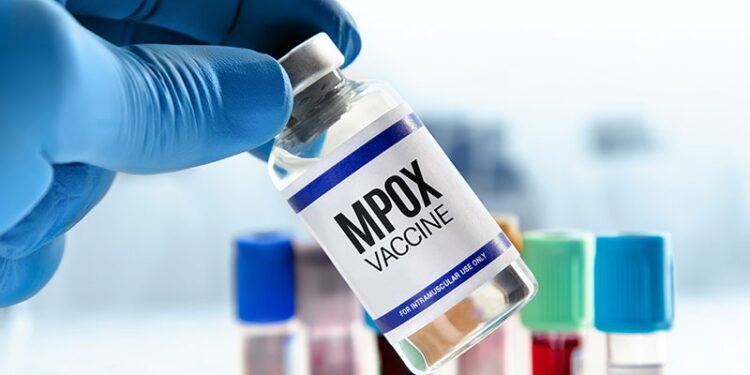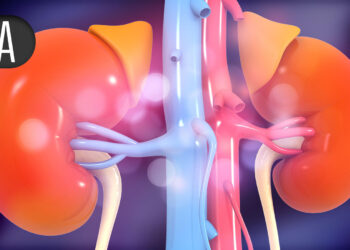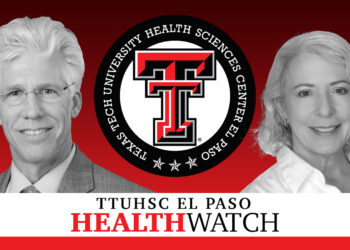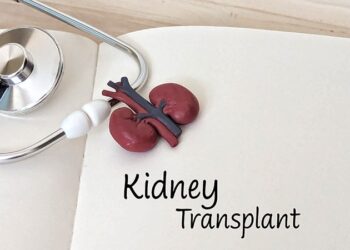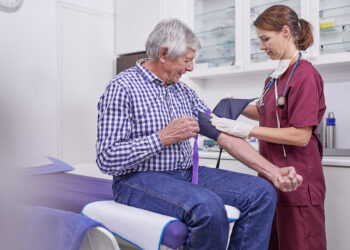TOPLINE:
The modified vaccinia Ankara-Bavarian Nordic (MVA-BN) vaccine was safe and well tolerated and offered protection against mpox in people living with HIV, individuals on HIV preexposure prophylaxis, and individuals previously vaccinated for smallpox, although its effectiveness was found to be reduced in people living with HIV.
METHODOLOGY:
- Researchers conducted a combined study — a prospective cohort study to assess the safety and reactogenicity and an emulated retrospective randomised trial to assess the effectiveness of first and second doses of the MVA-BN vaccine against mpox in men who have sex with men and transgender adults with changing sexual partners.
- Between July 2022 and December 2023, 6265 participants (mean age, 41 years; 90.2% men) were included in the prospective safety cohort. Physicians assessed adverse reactions, serious adverse reactions, and adverse events of special interest.
- Between July 2022 and October 2022, 9175 participants (mean age, 44 years; 99.3% men; 51.7% with HIV infection; median follow-up, 55 days), including vaccinated participants and matched unvaccinated control participants, were enrolled in the retrospective efficacy trial.
- The primary outcome was the effectiveness of the MVA-BN vaccine, defined as a reduction in the risk for symptomatic polymerase chain reaction–confirmed mpox in vaccinated vs unvaccinated participants.
- Secondary outcomes were safety and reactogenicity, assessed overall and in subgroups (people living with and without HIV, individuals taking HIV preexposure prophylaxis, and individuals who had childhood smallpox vaccination).
TAKEAWAY:
- The MVA-BN vaccine showed an overall effectiveness of 57.8% (95% CI, 11.8-83.0) in reducing mpox cases at 14 days or longer after the first dose; however, the effectiveness was lower in people living with HIV than in those without (34.9% vs 84.1%).
- The cumulative incidence of adverse reactions was low: 0.35% (95% CI, 0.20-0.60) after the first dose and 0.14% (95% CI, 0.06-0.33) after the second dose.
- Local reactions (70.2% vs 56.8%) and systemic reactions (22.3% vs 17.6%) were more common after the first dose than after the second dose of the vaccine.
- In the efficacy cohort, vaccinated individuals experienced fewer pox lesions and had shorter healing times and fewer systemic symptoms than unvaccinated individuals.
IN PRACTICE:
“Although a single dose provided significant protection in people living without HIV, completing the two-dose vaccination course as recommended in international guidelines (eg, Germany, other European countries, and the USA, as well as in many other countries) will likely increase effectiveness and durability of protection, reduce symptom severity and dissemination of lesions in the case of breakthroughs, and limit transmission risk,” the authors wrote.
“As new mpox outbreaks emerge, refining vaccination strategies with robust and globally relevant evidence is not just an academic exercise, it is a public health imperative,” authors of a commentary wrote.
SOURCE:
This study was led by David Hillus, MD, Charité-Universitätsmedizin Berlin, Berlin, Germany. It was published online on March 18, 2025, in The Lancet Infectious Diseases.
LIMITATIONS:
This study had residual confounding and a limited number of mpox cases, leading to wide CIs. Sparse data in certain subgroups, such as those with less than 200 CD4 cells/μL, limited the interpretability of reactogenicity and effectiveness analyses.
DISCLOSURES:
This study was funded by the European Medicines Agency. The authors declared having no competing interests.
This article was created using several editorial tools, including AI, as part of the process. Human editors reviewed this content before publication.
Source link : https://www.medscape.com/viewarticle/can-repurposed-smallpox-vaccine-prove-effective-mpox-2025a10007bp?src=rss
Author :
Publish date : 2025-03-31 12:00:00
Copyright for syndicated content belongs to the linked Source.

